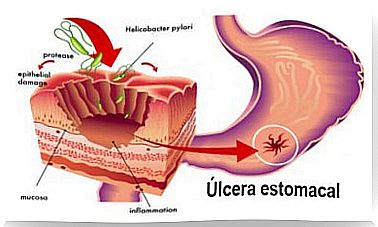Palliative Care: What Is It?
Serious chronic diseases significantly affect the quality of life of the patient and those around him. Palliative care is a form of care that helps this to have the least possible impact.

All people with a serious illness can benefit from palliative care. These constitute a form of care whose main objective is to provide support and relief to those who suffer from a severe health problem that can lead to death in the short or medium term.
Palliative care is proven to significantly improve the quality of life of critically ill patients and their families. Despite this, it is estimated that only 14% of the people who require this type of care receive it effectively.
Never in history has palliative care been required so much as now. This is because advances in medicine have made it possible to extend life expectancy and, therefore, increase the survival of people with chronic diseases. So there are many people who do not die immediately from the disease they suffer, but they do suffer from many of the rigors of it.
What are palliative care

Palliative care is an area of medicine that is responsible for preventing and alleviating the suffering of seriously ill patients, as well as providing a better quality of life for these patients and their families. They apply when a person suffers from a life-threatening illness.
The main objectives of this type of care are the following:
- Manage the symptoms that cause suffering in the patient and their families.
- Adapt the goals of treatment to the conditions and preferences of the patient.
- Facilitate and maintain communication between the patient, his family and the medical team in charge.
- Provide psychosocial and spiritual support to the patient and their families.
Palliative care covers a wide number of illnesses. Those who are in a severe stage of their disease benefit, as well as those who do not receive conventional treatment due to their condition. Also those that present a poor response to established treatments.
What is palliative care?
Serious chronic disease is a condition that affects multiple dimensions of the life of the patient and his family. Palliative care seeks to provide a response to:
- Physical problems
- Practical issues.
- Psychosocial aspects.
- Spiritual realm.
Physical problems often include pain, shortness of breath, trouble sleeping, and digestive disturbances. These problems are usually addressed with medications, physical therapy, nutritional counseling, and occupational therapy.
In these cases, there are also usually a number of practical problems mainly related to the availability of resources. When we talk about resources, we understand them as financial or means or tools necessary for the well-being of the patient and his family.
Serious illnesses also demand psychosocial support to cope with fear, hopelessness, or denial. It is provided primarily through counseling and support groups. Likewise, spiritual help should be given to explore beliefs and values that help to accept and handle the situation.
Who must provide them and under what conditions

Palliative care can be provided in a hospital, a specialized facility, or at home. The patient and his family are the ones who must decide which of them is the best option, taking into account the pros and cons of each one.
It is proven that, in most cases, home care is very beneficial for the sick person. However, this option will depend on the conditions and availability of each family, as well as access to external means of support.
Ideally, this type of care is provided by a medical team in partnership with the patient’s family. A person with a serious illness requires a group of doctors, a nurse, a physical assistant, a nutritionist, a psychologist, a social worker, a massage therapist, and a spiritual advisor.
Aspects to be taken into account
It is very important that both the patient and his family know in detail the details of the disease, the treatment options and the prognosis. This will give them elements of judgment to make the decisions of the case at each stage with greater criteria.
There is enormous inequality in the world in terms of access to palliative care. In high-income countries, almost all patients have them; On the other hand, in countries with fewer resources, this type of care is conspicuous by its absence. 98% of the children who require this type of care live in poor countries.








